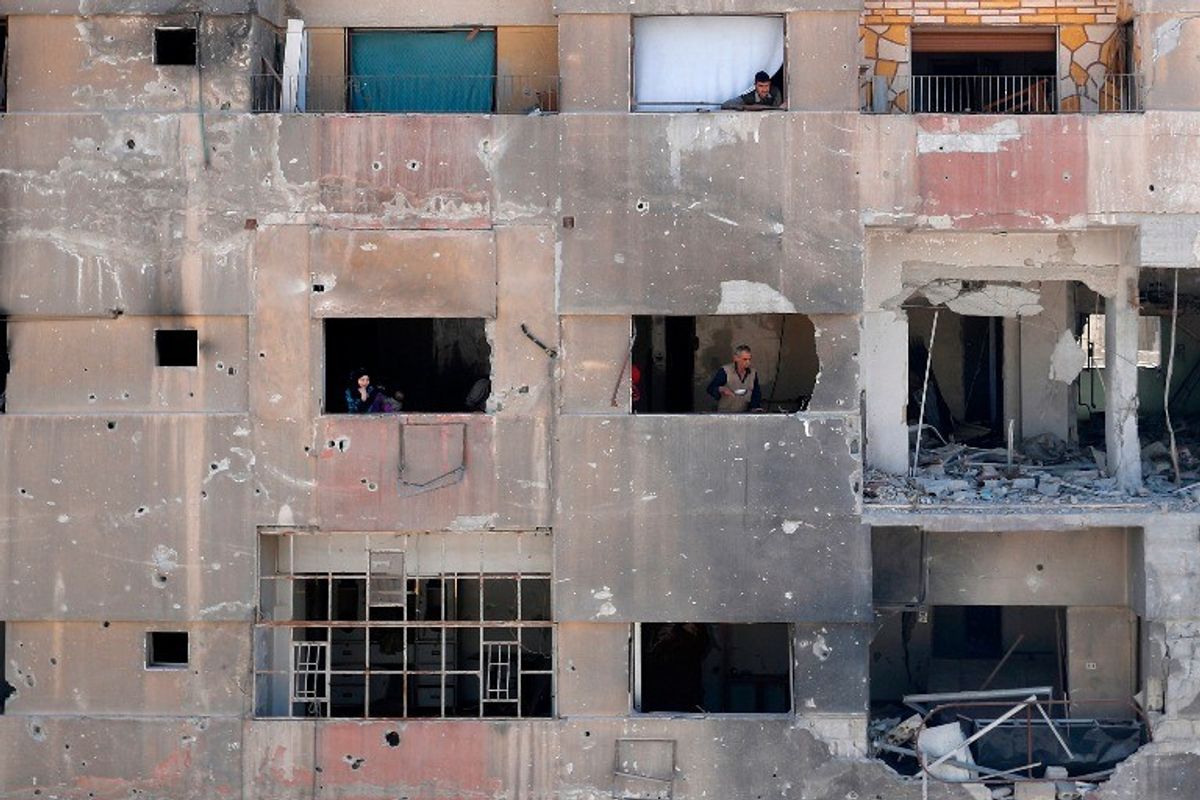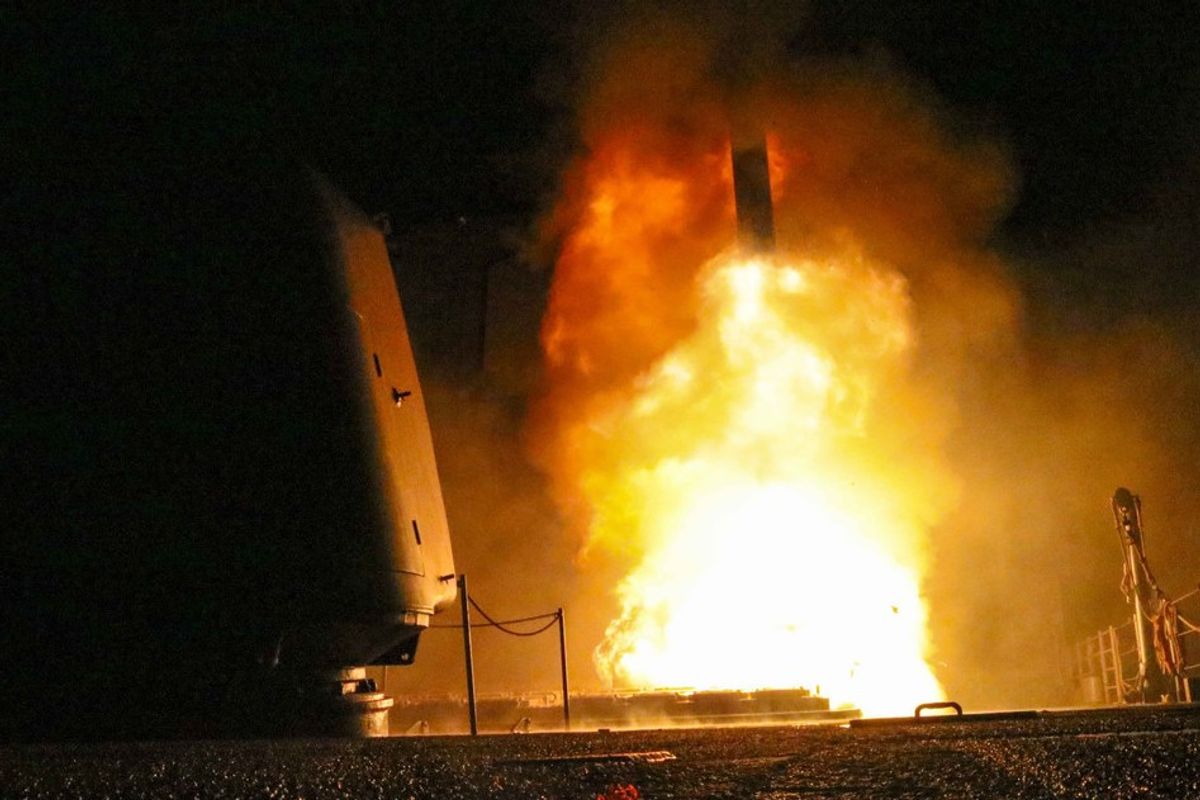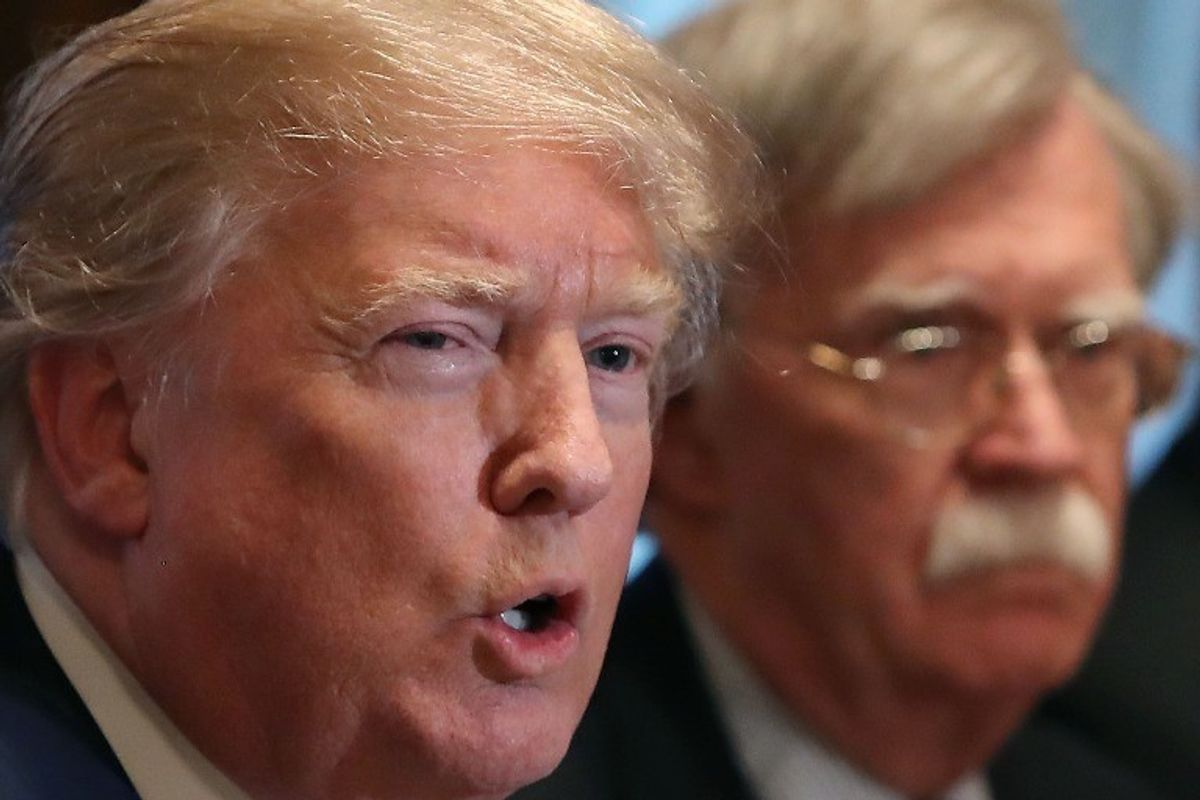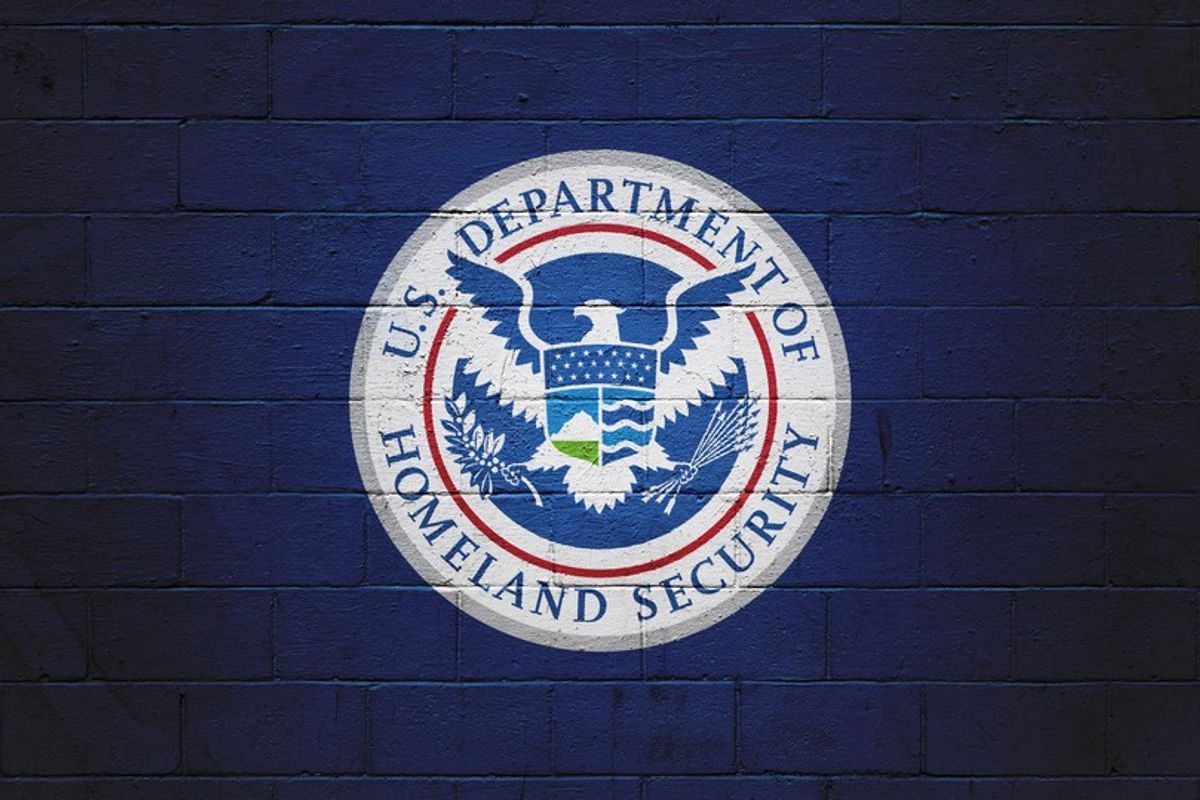A major conference on chemical security kicks off next week in Europe amid alarming reports of chlorine-filled barrel bombs dropped by the Syrian government and mustard gas attacks unleashed by the Islamic State in Iraq.
While those attacks don't represent the most prevalent tactics in Syria and Iraq, the specter of chemical terror is giving jitters to the war-weary Middle East and to Europe — chastened and shocked by the dramatic attacks in Belgium and France.
The Organization for the Prohibition of Chemical Weapons, which oversees the Chemical Weapons Convention, will be celebrating its founding through a three-day event at its Hague headquarters starting Monday.
"Chemical Safety and Security in a Technologically Evolving World," convenes across many disciplines to address the complex challenges and the security issues requiring continual attention from governments and industry.
Security in this environment is a daunting task because the battle to eliminate chemical weapons and stop their re-emergence is never really over as long as chemicals, such as chlorine, remain in industrial use and new chemical compounds are developed regularly.
The OPCW drew global attention after reports that the forces of the Syrian President Bashar al-Assad launched rockets loaded with the nerve agent sarin on an opposition enclave outside Damascus in 2013,
That incident, which resulted in the deaths of about 1,400 civilians, was a diplomatic game-changer at the time. The United States and Russia worked out a deal to get rid of Syria's chemical weaponry with the OPCW overseeing and carrying out the agreement with the help of partners.
The initiative averted threatened U.S. military action against the Assad regime over that attack and Syria, amid world pressure, joined the Chemical Weapons Convention.
Syrian citizens and the country's neighbors breathed easier as chemical weapons stockpiles were destroyed.
The OPCW won a Nobel Peace Prize for its efforts on Syria and the destruction of chemical weapons around the world.
Michael Weiss, co-author of ISIS" "Inside the Army of Terror,” said the stockpile removal, while an achievement, had a dark consequence. It served to legitimize the Assad regime "as a necessary partner in de-proliferation and therefore gave him a new lease on life, which of course led to his escalation of the conflict."
Furthermore, Andrew Tabler, a fellow in the program on Arab Politics at the Washington Institute, said the elimination of the stockpile “… has not however solved the issues of Syria’s declarations yet.”
Last month the OPCW Executive Council expressed concern over “gaps, inconsistencies, and discrepancies that remain with respect to chemical weapons facilities, activities, munitions, and chemical materials.”
It also expressed concern that the “declaration and related submissions of the Syrian Arab Republic” can’t be verified as “accurate and complete.” It wants the OPCW Director-General Ahmet Üzümcü. to meet with Syrian officials and settle the issue.
The OPCW's fact-finding mission continually investigates and confirms reports of chemical weapons use in Syria.
The OPCW-U.N. Joint Investigative Mechanism, tasked with identifying perpetrators of attacks, is now probing strikes in 2014-15 at seven locations in Syria, five in Idlib province, one each in Hama and Aleppo provinces.
The mechanism's mandate is up in September so it is expected to issue a report to the U.N. Security Council "sometime shortly before then," according to its public information officer, Aleksandra Gorisek.
The Syrian American Medical Society, in a March report entitled "A New Normal: Ongoing Chemical Weapons Attacks in Syria, said it documented 161 chemical attacks from the beginning of the war through 2015.
Out of those, 77 percent occurred after the U.N. Security Council resolution in September 2013 created a framework for removal of declared stockpiles.
In Iraqi Kurdish region, chemical attacks with mustard gas have been confirmed, and news reports indicate ISIS was responsible for such attacks.
In March, Üzümcü expressed concern over the “possible use of chemical weapons by non-state actors” targeting civilians in the Iraqi town of Taza.
“The OPCW has taken serious note of these disturbing reports against the background of confirmed use of chemical weapons in Iraq, Üzümcü said. “Any use of chemical weapons is abhorrent and a violation of universally accepted international norms.”
Kenneth Ward, the U.S. ambassador to the OPCW, bluntly criticized Syria and raised concerns about the issue of non-state terror during his Senate confirmation hearing in October.
"The bulk of their program was declared," he said of Syria. But he noted the regime isn't coming clean.
He said the Assad regime has not declared all of the elements of its program and continues to flout "the most fundamental obligations of the CWC."
But the "real immediate threat" of chemical weapons’ use, he said, is coming from "non-state actors" and wonders whether "a new era of chemical terrorism has come along."
The European Parliament issued a report in December urging states to prepare "for the possibility of a chemical or biological attack on their territory" by ISIS. It cites reports of the group using mustard gas, chlorine and "toxic industrial or agricultural chemicals repurposed as weapons."
It says ISIS is recruiting people with degrees in physics, chemistry, and computer science, and is "believed to have the ability to manufacture lethal weapons from raw substances."
Former British army officer and chemical weapons expert Hamish de Bretton-Gordon says ISIS is producing such weaponry in Mosul, the huge Iraqi city under its control.
U.S. forces in Iraq recently captured a top ISIS operative tied to the group's chemical weapons program and conducted strikes after gleaning intelligence from him.
In the event of chemical incidents, the OPCW says it helps its member states “improve their capacity to respond” and conducts “medical training courses for the treatment of chemical casualties.”
"I hope,” Ward said about the threat of chemical terror strikes,” we can put that genie back in the bottle."
Joe Sterling is freelance writer and a contributing correspondent for The Cipher Brief. A veteran of CNN.com and the CNN Wire, he helped spearhead the network's daily coverage of Iraq, Afghanistan, Syria, the Arab Spring and other regions from 2001 to 2014. He worked for many years as a reporter, copy editor, and Web editor at daily newspapers.












